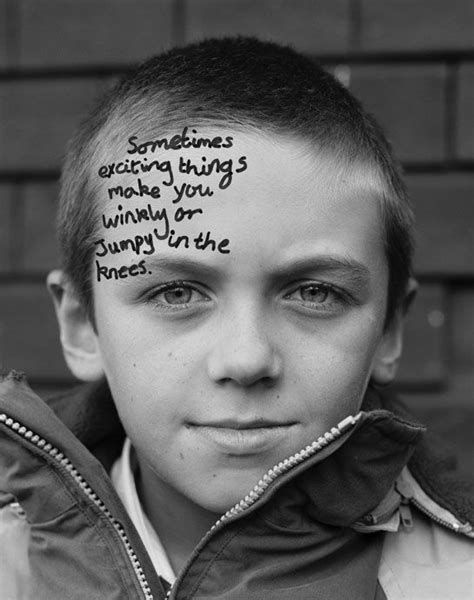A Quote by Jonathan Haidt
The consistent finding of psychological research is that we are fairly accurate in our perceptions of others. It's our self-perceptions that are distorted because we look at ourselves in a rose-colored mirror.
Related Quotes
The ability to know that your perceptions are accurate has to happen without others' validation. Intuition is not the result of diet, rituals, or wind chimes. It's the natural consequence of having self-esteem, the greatest power you can have. With self-esteem, your life can broaden into an adventure because you can know in your gut that you can handle the unknown. And you can handle helping others without fear, which is true liberation.
We are completely unaware of our true nature because we identify ourselves with our body, our emotions and our thoughts, thus losing sight of our unchanging centre, which is pure consciousness. When we return to our true nature, our thoughts and perceptions no longer appear as modifications of a single substance, they come into being and subside like waves of the ocean.
What is the possible benefit? Can this material save lives? Can it improve the quality of life in Iraq? Can it tend to shape our perceptions of how war should and should not be conducted? Can it shape our perceptions of who should be conducting war and in what manner? And the answer to that is a clear yes.
If we are at war with our parents, our family, our society, or our church, there is probably a war going on inside us also, so the most basic work for peace is to return to ourselves and create harmony among the elements within us - our feelings, our perceptions, and our mental states. That is why the practice of meditation, looking deeply, is so important.
What is real to me is the power of our awareness when we are focused on something beyond ourselves. It is a shaft of light shining in a dark corner. Our ability to shift our perceptions and seek creative alternatives to the conondrums of modernity is in direct proportion to our empathy. Can we imagine, witness, and ultimately feel the suffering of another?
Remembering our past, carrying it around with us always, may be the necessary requirement for maintaining, as they say, the wholeness of the self. To ensure that the self doesn’t shrink, to see that it holds on to its volume, memories have to be watered like potted flowers, and the watering calls for regular contact with the witnesses of the past, that is to say, with friends. They are our mirror; our memory; we ask nothing of them but that they polish the mirror from time to time so we can look at ourselves in it.




































